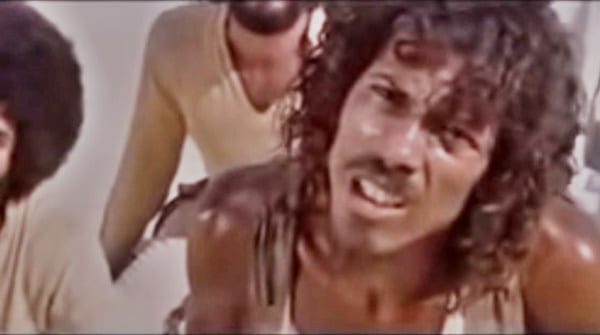I used to think that all teachers knew what they were doing. They are the professionals, after all. As professionals, they know how best to manage their classroom. But one experience changed my mind forever.
From the beginning of first grade, my son hated going to school. He took forever to get dressed and put on his shoes. As he walked out the door, his shoulders curved forward as he looked to the ground.
Sometimes he talked about his teacher. He’d make vague statements about her, saying that she was mean and sometimes yelled at him. When I contacted her and asked how he was doing in class, she replied that he was a good student who didn’t cause any trouble.
So, I let it pass, convincing myself that his teacher wasn’t that bad. I had a good rapport with her during the first parent-teacher conference meeting of the year. I reminded myself that she was the professional – a 15-year veteran of her trade. And besides, my son needs to learn how to get along with people he doesn’t like. Including teachers.
That was the biggest parenting mistake I’ve ever made.
By the second parent-teacher conference of the year, my son still hated school. On the way to the conference, my wife and I joked about who would be the “good cop” and who would be the “bad cop.” Because I hate conflict, I took the role of “good cop.”
The Train Wreck
I asked the teacher how our son was doing. She repeated that he was doing fine and wasn’t disruptive during class. But this time she continued in a frustrated tone, “He’s always the last one to get in line after recess. He’s the last one to hang up his jacket up. And when he does hang it up, his shoulders are hunched over and he stares at the ground as he walks to his cubby. Once we had a train wreck because I told him to put his toys away after free time, and he refused.”
My blood boiled as so many thoughts ran through my head. I wanted to yell at her, “Stop *&#%ing with my son! His shoulders are hunched over and he stares at the ground because you shame him into doing things. He hates going to school, and if I had you as a teacher, I’d hate going to school, too!”
Fortunately, I didn’t say that. After taking a deep breath, I went with her “train wreck” metaphor. I asked, “And who’s driving that train?”
“Excuse me?” she replied with a blank look on her face.
“Who’s driving that train?” I repeated, as I put on my bad cop hat for pretty much the first time in my life. Blood flushed to my brain as I continued, “Because I’ve been in some train wrecks with him, too. And after the wreck, I realize that I’m the adult. I’m the one driving that train.”
Stunned, she looked at me for a few moments before changing the subject to his reading abilities. My wife put her hand on my knee, attempting to calm down my inner bad cop.
I made my point, and I wish I’d made it much sooner in the year. My son couldn’t advocate for himself and he had a father who made excuses for a bad teacher who used shame as her primary teaching motivation.
First grade didn’t get worse, but it didn’t get much better, either. His teacher continued to use shame as her primary motivational technique. And she did damage to my first grader’s self-esteem.
How to Advocate for Your Child
But not irreparable damage. We moved after that year to a new school district, but we took the lessons of first grade with us. No longer did I simply trust that teachers are the professionals, so they know what they’re doing. We advocated for our child before the new school year began, claiming that he needed a teacher that wouldn’t shame him or yell at him. He needed a teacher who would be on his side.
His second grade teacher was Mrs. Jones. I met with her before the school year started and told her about my son. Damn I love him, but he can be difficult. I warned that he often resists authority, especially when the authority figure uses power against him. As his father, I explained, I know how easy it is to get into a power struggle with him.
“I’ll work with him,” Mrs. Jones replied. “Not against him.”
Second grade went much better – until the third day. That’s when Mrs. Jones called me. She said my son refused to do his English assignment. “That’s when I shamed him. My voice got higher as I demanded that he do it. He responded by sinking lower into his chair and he resolved even more to not do his work. That’s when I realized that I can’t expect him to adapt to me. I have to adapt to him.”
My eyes become watery when I think about that conversation. Mrs. Jones did adapt to my son. She made all the difference for his mood and self-esteem. He loved second grade. He loved Mrs. Jones. She didn’t care if he was the last one to get in line or to put his toys away. She knew how to drive the train that is a second grade classroom. There were no wrecks. She gave him boundaries that he could work within. She didn’t shame him into doing things. Instead, she loved him for the joyful, if sometimes difficult, second grader that he was.
And that love motivated my son. We humans are mimetic, or imitative, creatures. We imitate the emotions of those around us. My son was caught in an imitative cycle of negative emotions with his first grade teacher. Shame led to a relationship of mutual resentment. Indeed, that’s a train wreck. But his second grade teacher knew that she was responsible for avoiding those wrecks. She was driving the train. She changed her behavior and emotions so that my son knew she was on his side. He, in turn, wanted to help Mrs. Jones. He wasn’t motivated by shame or fear. Rather, he was motivated by the fact that he knew he was loved.
That’s the greatest lesson that any teacher can give.
Image: Copyright: wavebreakmediamicro / 123RF Stock Photo
Stay in the loop! Like Teaching Nonviolent Atonement on Facebook!












